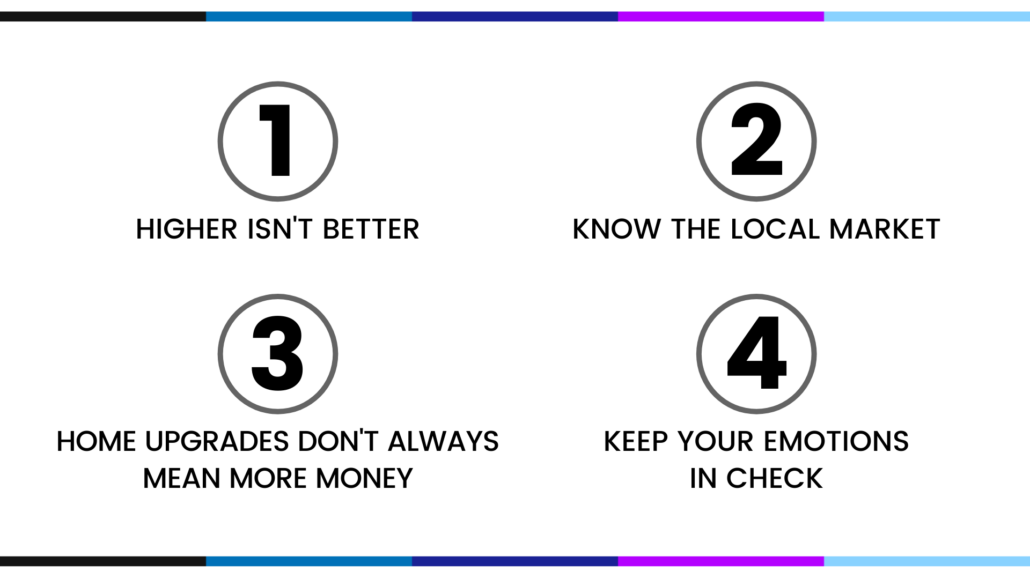4 Ways to Price Your Home Like A Pro
Your home is a major investment in time, money and memories, so understandably, selling it can be an emotional process.
It’s important to lean on your REALTOR® for guidance. After all, this person is your go-to industry expert who is invested in helping you sell on your timeline and for the best possible ROI.
Still nervous about the pricing conversation? We’ve created four pro tips to help you through this process.

1. Higher Isn’t Always Better
Be strategic in your pricing and don’t list too high – that could scare away potential offers!
The longer your house sits on the market, the less likely you are to get your asking price. Buyers are more likely to negotiate a deal on a house that’s been listed for a significant stretch of time. A price-to-sell strategy will give you leverage, options and exposure to potential buyers.
2. Know The Local Market
How did similar homes in your neighborhood sell? These comparables (also called “comps”) play a big role in your own home’s price.
Your REALTOR® should run the average sale price for homes in your area. When selecting comps, REALTORS® generally filter properties within a one-mile radius of your home that sold in the past 90 days. Comparable homes will be similar in age, location, square footage and number of bedrooms/bathrooms.
Based on these results, they’ll pinpoint the differences and assess why price reductions did or didn’t happen. This nuanced understanding is invaluable, particularly when measuring the unique aspects of your home.
3. Upgrades Don’t Always Mean More Money
Buyers want a home they can:
- Picture themselves in, and;
- Easily make their own.
Help spark their imagination with neutral updates. Upgrades based on specific taste can sometimes devalue a home based on personal buyer taste and preference.
For example, just because you spent $40,000 to update your kitchen doesn’t mean you get to add an extra $40,000 to the listing price. Research from the National Association of REALTORS® states you might recoup 59% of your costs, based on the national average of kitchen upgrades.
Talk to your REALTOR® about what you can do, or have done, that positively affects your home value and listing price.
4. Keep Your Emotions in Check
Don’t let pride, sentiment and nostalgia mislead you!
According to the National Association of REALTORS®, the wrong price can drastically delay your sale. That “fresh factor” tends to wane after just 30 days! Therefore, it’s important to listen to your REALTOR® about your pricing strategy.
Their unbiased perspective combined with knowledge of the market and real estate inventory will help you walk away from the closing table feeling confident in your transaction.




